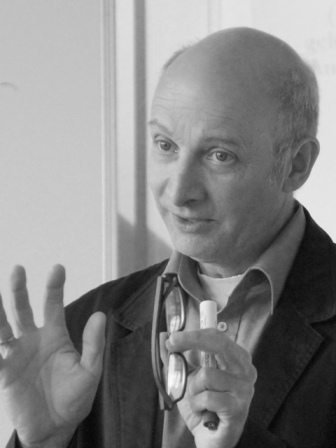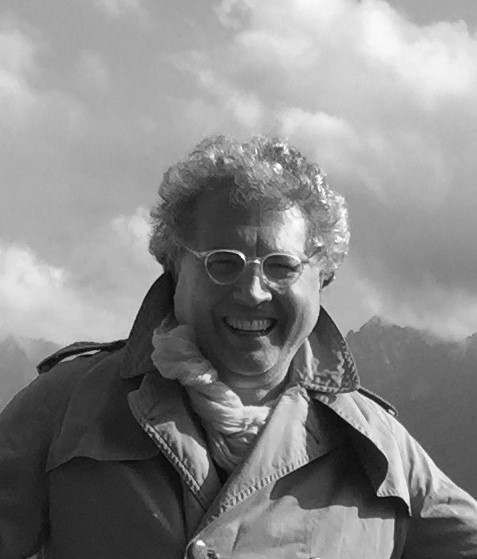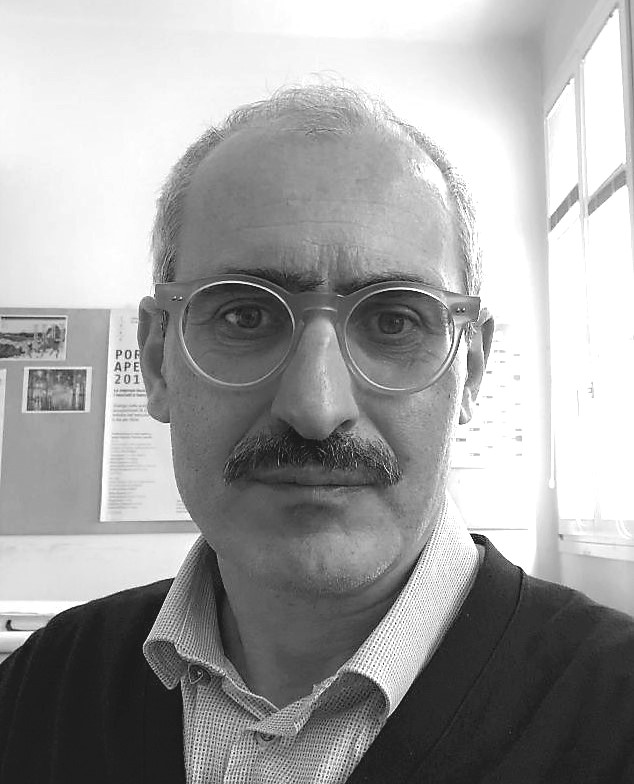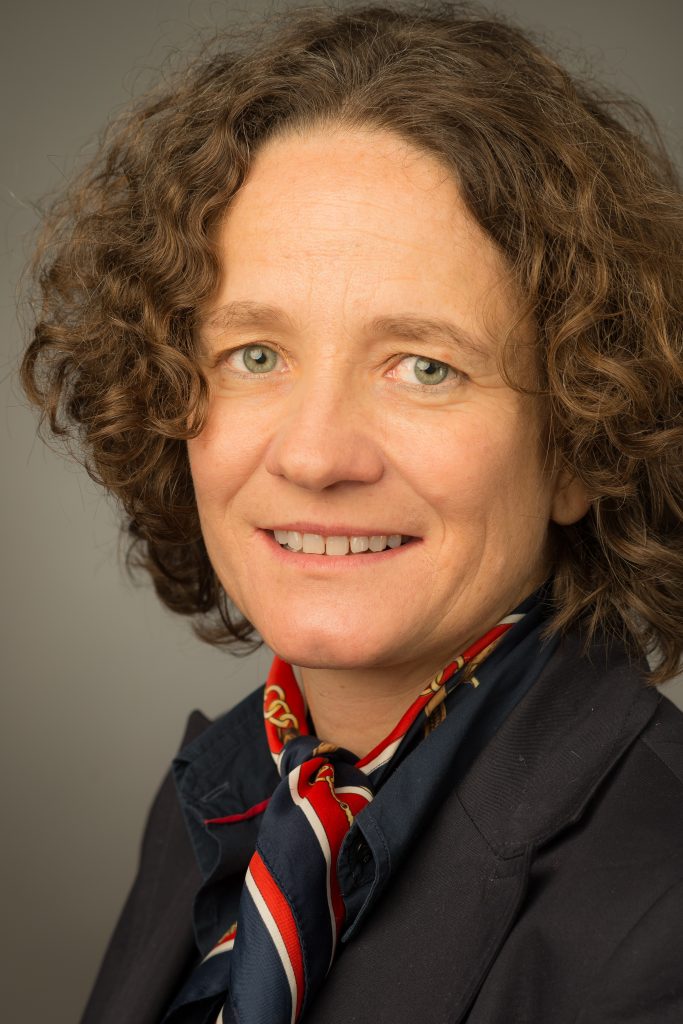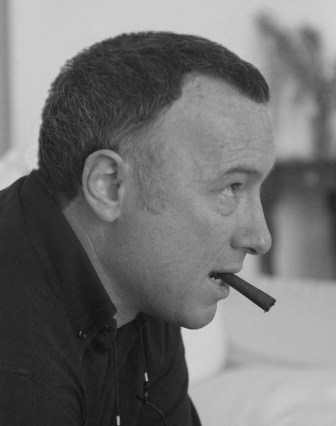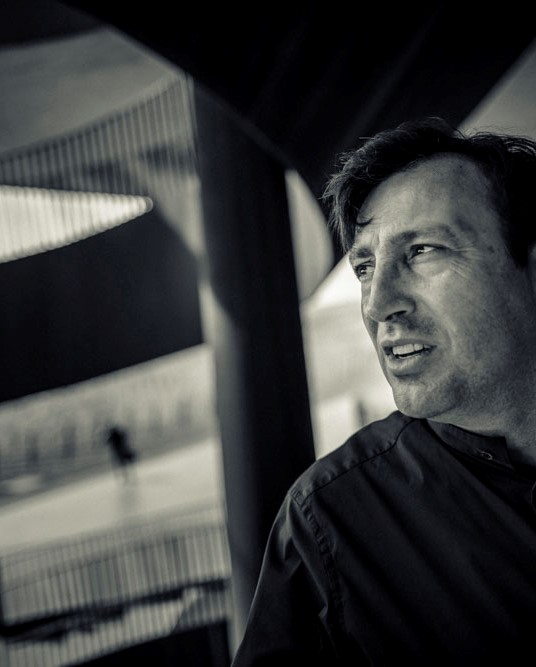
Marco Casamonti
Marco Casamonti graduated in 1990 from the University of Florence, and in 2001 became Ordinary Professor in Architectural and Urban Design at the Architecture Faculty of the University of Genoa. He carried out intensive research and critical analysis on architecture themes, publishing essays and papers and holding conferences and lectures. Since 1997, he has been the editor-in-chief of the international architecture magazine Area published by Tecniche Nuove Group. In 1988, he founded Studio Archea together with Laura Andreini and Giovanni Polazzi, to whom was added Silvia Fabi in 1999.
Founded in 1988 by Laura Andreini, Marco Casamonti and Giovanni Polazzi, to whom was added Silvia Fabi in 1999, Archea is now a network about 120 architects coming from different regions and worldwide universities who operate from the six different offices in Florence, Milan, Rome, Beijing, Dubai and São Paulo. The group’s interests and research activities range from landscapes to cities, from buildings to design, and despite being focussed on architecture, the projects cover graphics and publishing, exhibitions and events. The complementarity and scaling from assessment to building site allows integrated operations which are able to intervene in the different types of components of the projects.
In addition to their research in the field of design, each founding partner has a parallel activity at the Architecture faculties of Florence and Genoa. The most important projects include: the Public Library in Nembro (Bergamo); the new Cantina Antinori in San Casciano Val di Pesa (Florence); the UBPA B3-2 Pavilion at World Expo 2010; GEL, Green Energy Laboratory, in Shanghai, the enlargement and renovation of the Perfetti Van Melle site in Lainate near Milan, the CDD Center for Disabilities in Seregno (Milan), the Yanqing Expo Grape near Beijing, the Li Ling World Ceramic Art City in China, the Colle Loreto residential complex in Lugano, Switzerland and the renovation and transformation of the former Magazzino Vini in Trieste where Eataly is hosted. Under construction among others, are the Forevregreen Tower and the Albanian Stadium of soccer game both in Tirana, Albania; Changri-La Winery in Penglai (China).
HEINRICH HAASS
Professor, Hochschule Anhalt, Abbot Bernburg, Germany
German scientist, architect BDA, city planner, tourism expert and expert for urban waterfront planning and marina design, nautical tourism and amphibic/floating structures. Since 1993 full Professor at the University of Anhalt, Abbot Bernburg, Germany. Chairman of the research group of nautical tourism. He has been Visiting Professor at the Politecnico di Milano, the University of Pescara, and University La Sapienza, Roma.
He authored different publication like “TourismusArchitektur München 2017”; “Neue Wege für künftigen Hochwasserschutz, in: Stadt und Gemeinde, Heft 7/8 2013 Bonn 2013”; “Stadt am Wasser, Neue Chancen für Kommunen und Tourismus, Frankfurt/M. 2005”; “Wassertourismus, Handbuch und Leitfaden zur Entwicklung wassertouristischer Angebote, Gerlingen 20112″; ” StadtWasser Wasserkonzepte für die Stadtgestaltung, Stuttgart 2010″. Professor Haass is President and CEO of DEUTSCHE MARINA CONSULT, Hannover/Germany, Expert and Vicepresident of Internationale Bootsexpertene.V, Chair of PIANC WG 183. Research interests: water-oriented urban development, Tourism architecture Urban Design.
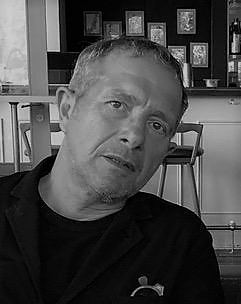
MOSE’ RICCI
Full Professor of Urbanism and of Architectural Design, University of Trento.
Emeritus of the Italian Republic for Art and Culture (since 2003).
Fulbright Scholar at GSD, Harvard University, USA, (1996-97). Visiting Professor at U-Moderna Lisboa (2006-2007), at Technische Universitat of Munich (2008-2009), at IAAC, Barcelona, Spain (2015) and at MAUD U-Patras, Athens (2018). Member of the Villard International Doctorate.
Curator for Urbanism and Landscape, Recycle exhibition MAXXI Museum Rome, 2011-2012.
Selected books: Habitat 5.0 (Skira, 2019), New Paradigms (List, 2012), UniverCity (List 2010), iSpace (Meltemi, 2008), RISCHIOPAESAGGIO (Meltemi, 2003).
His projects got prizes in several international competitions and participated in the Venice Biennale (1996, 2012). His Ghella Headquarters in Rome was European Solar Prize (2015.)
Member of the Jury of the XX Biennal of Arquitectura de Chile (2017) and of the Montenegro Pavillon, Venice Biennale (2018).
Accademia dei Lincei (Italian National Academy of Sciences) invited scholar (2019-2022)
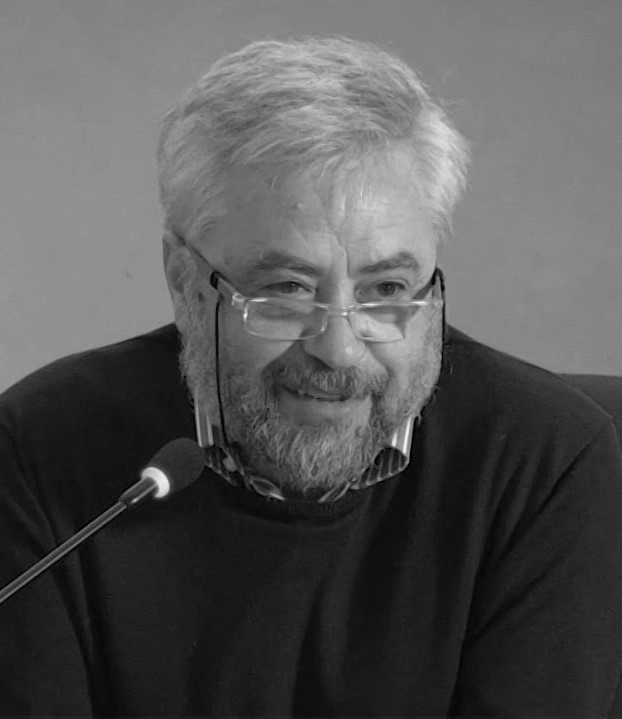
GIUSEPPE DE LUCA
Full Professor of Spatial Planning, Dept. of Architecture, University of Florence. He is Deputy Director of the Department and Coordinator of the PhD Program in Architecture. Academic of Honor at the Accademia delle Arti del Disegno of Florence.
He is professor under contract at the Catholic University (UNZKM) in Tirana. Member of the INU (National Institute of Urban and Regional Planning) national boad, in Rome, from May 2011 to May 2016 he has been General Secretery of the Institute, and now he is President of the INU Edizioni, Inu’s publisher company.
He has studied Urban and Regional Planning at the University Institute of Architecture of Venice and Planning studies at the London School of Economics.
He always carried out his research in the Academy, integrating it with scientific advice and operational trials carried out overwhelmingly on behalf of regional and local governments or agencies.
The main fields of research are directed to the study of forms and methods of construction of public decision, Government control and monitoring of spatial transformations.
His research interests in recent years have focused on three main issues: how do we adapt current spatial planning, in its regional and local practices, using a cooperative governance approach?; how to defend the historical identity of the European City in the globalization era and free movement of capital and people? Is a Coding Forma Urbis still useful in the anthropocene era
FRANCESCO COLLOTTI
Francesco Collotti (Milano, 1960) is architect and full professor at DIDA Università degli Studi di Firenze, promoting not only the research on architectural identities, but also involved in the the international programmes of scientific and cross cultural fertilization. His activity is a link between research, professional work and teaching. Engaged for a sustainable, site specific and responsible contemporary architecture. FC builds at the moment in Italy (WW1 fortresses/museums), Jordan (cultural heritage), Oman (museum + UNESCO archaeological area), Turkey (archaeological areas and gardens) and Germany (Frankfurt Main, Haus M34 in Dom-Römer Viertel + Pergola for the reconstruction of Krönungsweg). The research and the pilot-projects are particularly focusing the Mediterranean area with selected case-studies from Balkans to Northern Africa, from Alps to Middle and Near East. FC promotes exhibitions and conferences related with the didactics. Contributor review Domus (1985-1995), Fondazione Masieri in Venice and in the editorial staff of Phalaris (1989-1994). Teacher at International Design Seminars “Naples, architecture and city” (Università degli Studi di Napoli, DOMUS, D.A.M. Frankfurt).
Since 1997 member of the Scientific Committee of the Swiss reviews Rivista Tecnica and (1998) Archi. His articles and essays are published in the most important international architectural reviews (Werk bauen+wohnen, Domus, Casabella, Archi, FirenzeArchitettura). Member of the editorial staff of Firenze-architettura edited by the DIDA Dpt. of the Florence University. Visiting professor ETH Zürich in architectural theory – Institut GTA (1994-1996). 2000/2001 visiting professor Faculty of architecture, Universität Dortmund. Professor at SSEAU Neaples and at Politecnico di Milano-Facoltà di Architettura Civile. Visiting Professor in China at Jinan University 2012/2014. Professor also in the 2nd level master promoted by Università Federico II in Neaples and by the review DOMUS focused on the design for the historical heritage in the Mediterranean town. Full professor at EMADU Ecole Euromed d’Architecture, de Design et d’Urbanisme/Euromed University of Fès – Université Euroméditerranéenne de Fès.
Actually Coordinator PhD programme ARCHITECTURE AND DESIGN CULTURES, KNOWLEDGE AND SAFEGUARDING OF CULTURAL HERITAGE of the University of Florence.
ENRICO ANGUILLARI
MA Architect, PhD in Urbanism, as research fellow at Università IUAV di Venezia, I have been responsible for the developing the Landscape Observatory on the Po River Delta Region; Iuav coordinator of the ERASMUS+ Capacity Building project: “KLABS – Creating the Network of Knowledge Labs for Sustainable and Resilient Environments”; he currently coordinating the project URPLOT – Urban Planning Orientation and Tutorship, financed by the Italian Ministry of Education, University and Research.
His main research interests concern the environmental impacts of dispersed urbanization, focusing on emerging urban/landscape scenarios based on vulnerability reduction. In this respect, it is worth mentioning the research “Veneto 2100 – Living with water” selected for the 5th International Architecture Biennale of Rotterdam – 2012.
Mr. Anguillari worked to several large scale plans and projects including the Structural Plan of Ferrara; the Development plan for Les Hauts de Rouen; the Planning Programme for the Po di Levante – Canal Bianco River; the City Plan of Roncegno Terme.
His professional and research activity has always been supported by a constant interest in teaching. I have been adjunct professor in Urban Planning Theories and Models at the Università di Camerino; in Urban and Landscape Design at the Università IUAV di Venezia and at the Università di Firenze. I have also led several international workshops and EU-LLP Erasmus Intensive Programmes.
He regularly lectures in academic and professional fields and I have published essays and articles in books and journals both nationally and internationally. Among others:
Anguillari E. (Ed.), Back to the land – Ritornare alla terra. Anteferma Edizioni, Treviso, 2019;
Anguillari E., Dimitrijevic B. (Eds.), Integrated Urban Planning. Directions, Resources, Territories. TU-Delft Open, Delft, 2018;
Anguillari E., Fikfak A., Konjar M., Kosanovic S. (Eds.), Sustainability and Resilience. Socio-spatial perspective, TU-Delft Open, Delft, 2018.
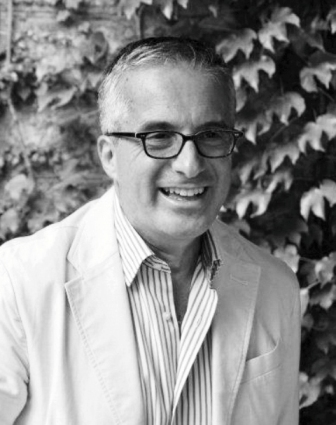
PAOLO DI NARDO
Paolo Di Nardo (1958) graduated in Architecture at the University of Florence in 1985 and obtained a PhD in Architectural Design at the same University. For his extensive professional activity, Paolo Di Nardo has been working closely with the Faculty of Architecture in Florence, where he is a professor of Architecture LABORATORIO II from 2006 to 2017 and LABORATORIO PROGETTAZIONE DI INTERNI 3 from 2016 to 2020.
Professor of “SKETCH AND DRAWING” at Kent University 2012/2013; Professor of “HISTORY OF ITALIAN DESIGN” at Roger William University 2012/2013; Professor of “URBAN SPACE DESIGN” at the Doctoral Program in Politeknik University in Tirana, Albania 2012/2013; Professor of “MORPHOLOGY OF THE CITY” (1997/98) at Stanford Visiting Critic of “URBAN STRATEGIES”, (2012/2013) I LEVEL EUROPEAN MASTER, Monumental Heritage Program, Anhalt University of Applied Science BAUHAUS, Dessau, Germany; Visiting Professorship of “Environmentally Sustainable Cities and Buildings”, II LEVEL EUROPEAN MASTER, Urban Strategies Postgraduate School, University of Applied Arts Vienna Institute of Architecture (joint program with University of Cagliari); Academic Staff Member of Curating the City, Urban Design Laboratory, ESALA Edinburgh School of Architecture, Coordinator Prof Dorian Wiszniewski; Visiting Professorship of HIDDEN BEAUTY, The Design Hidden in the General Ball of Design Portsmouth University, Portsmouth, GB May 2017; Visiting Professorship of HIDDEN BEAUTY, the hidden design in the Aukland University Design Aukland, September 2014.
Since 2003 he has been the FOUNDER and EDITOR’S DIRECTOR of the Four-Month Magazine AND “Architectural Review, Towns and Architects” with editorial staff in Florence.
The architect Di Nardo co-ordinates a team that has been involved in numerous architectural competitions in Italy and abroad for over twenty five years and received awards and prizes (from 1982 to 2012, 20 competitions won and 5 announcements in addition to the Michelucci Foundation Award, Biennial Award Mediterranean Youth Productions, Under40 Commune of Florence, Around50 Prize, Metra Award for Architecture).
In 2009, the work is done in Florence, the underground parking of Piazza Alberti was selected for GOLD MEDALS at Architecture. In 2004, his project for the redevelopment of the San Niccolò Pescaia in Florence (Water and Stone Steps) was selected for the Venice Architect BIENNALE.
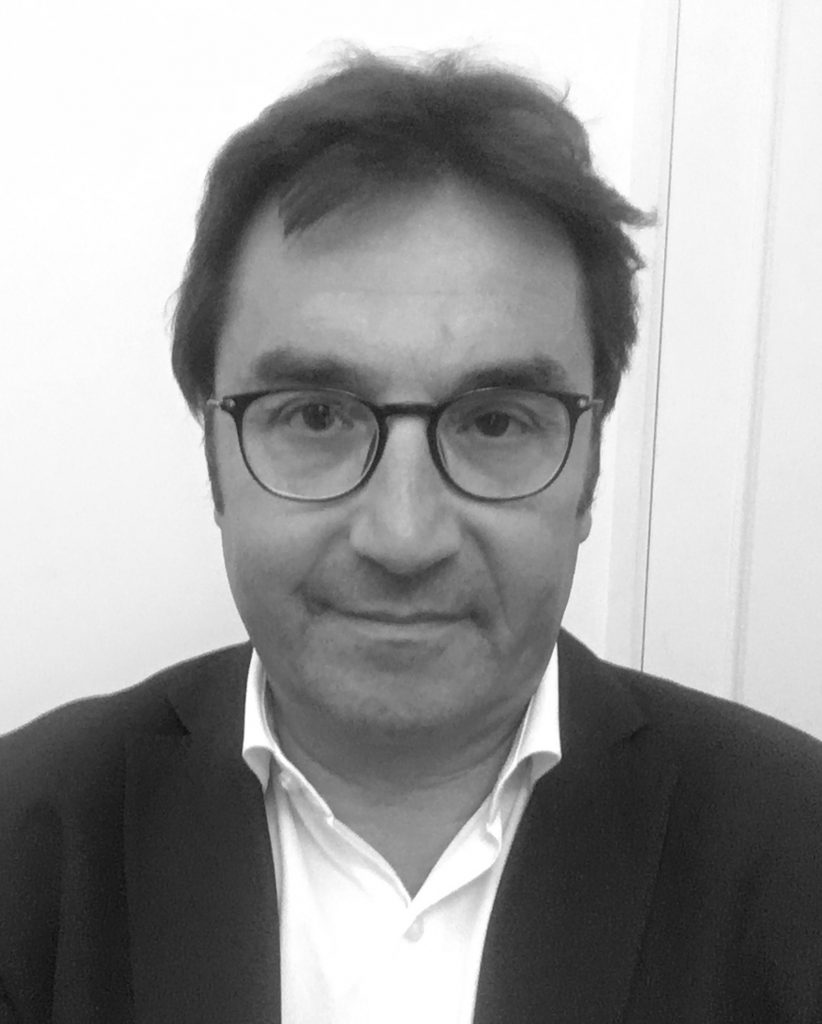
LUIGI MAFFEI
Luigi Maffei. Mechanical Engineer, PhD in Architectural Acoustics. Full Professor of Building Environmental Control and Applied Acoustics at the Università della Campania “Luigi Vanvitelli”. Dean of the Department of Architecture and Industrial Design (2015-2021). Director of the Master in Acoustics and Noise Control. Coordinator of two international didactic projects co-funded by the Italian University and Research Ministry: MEDACOUSTICS Master “Acoustics and Noise Control in Mediterranean Countries” with the Yildiz Technical University di Istanbul a.a. 2006/2007, Summer School on “Built Environment Control” with the Togliatti State University a.a. 2009/2010.
Scientific Coordinator for the Università della Campania “Luigi Vanvitelli” for the ITN Marie Curie Project “SONORUS- Urban Sound Planner” FP-7, years 2012-2016.
President of the EAA European Acoustics Association (2007-2010). Vice President (2010-2019) and President-Elect (2020-2022) of the I-INCE Institute of Noise Control Engineering. President of the Acoustical Society of Italy (2014-2017). Member of the Acoustical Society of America. Chairman of the European Conference on Noise Control EURONOISE 2003, Co-Technical Chairman of the INTERNOISE 2019 Madrid and INTERNOISE 2016 Hamburg, member of the advisory committee and organizer and chairman of structured sessions of different international conferences.
Author of more than 240 scientific reports on acoustics and noise control published in international and national journals, and in the proceedings of international and national congresses. Scientific manager of research contracts on acoustics and noise control topics drawn up with famous Italian public and private firms.
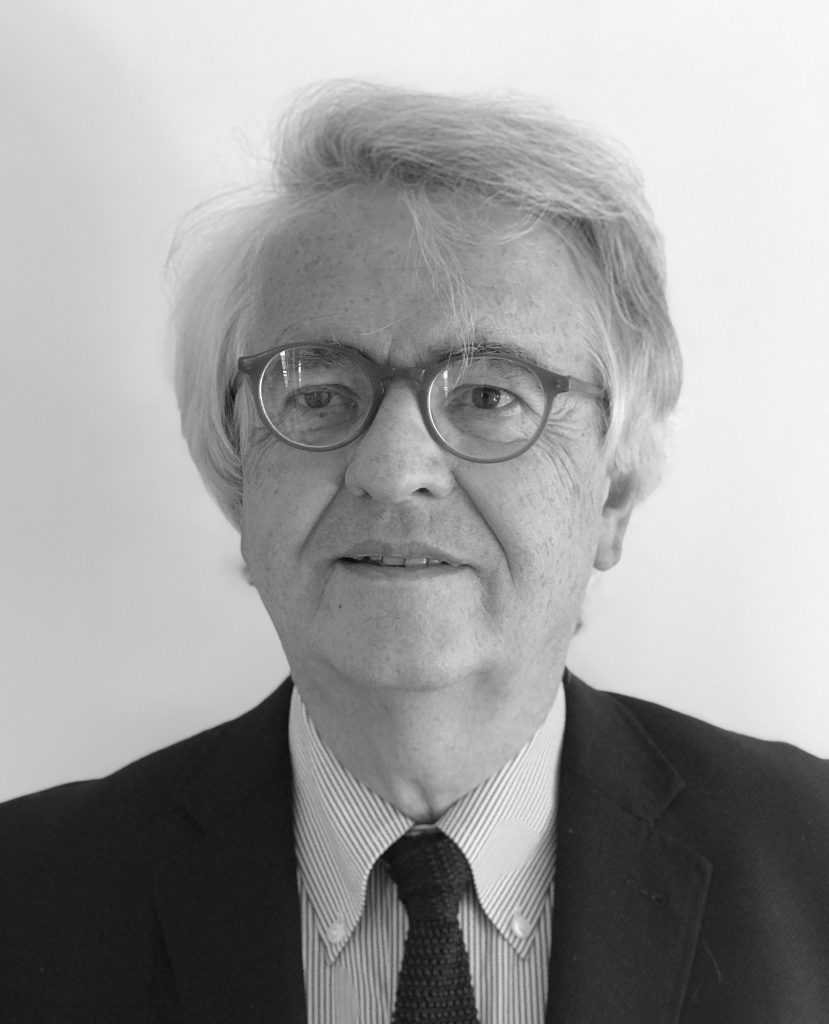
PAUL-LOUIS MEUNIER
Professor MEUNIER has been teaching as Professor of Physics and Industrial Research Projects at ESTP-Paris (France) since 2007. He fertilises theoretical physical knowledge with Field Applications in the Civil engineering, Building and Architecture, tutoring students at Master levels opening new challenge in each field. Along with his career, Pr. MEUNIER filed more than 250 International Patents in the Hi-Tech industry, wrote numerous Publications within famous International Physics reviews (APL, EL, JAP, Magnetic TL…). He was assigned a former expert for selection EU projects during Research Lab career at LCR Orsay France, and Innovation officer at Multinational companies for 13 years. He is part of the ESTP team which has been nurturing the cooperation with UPT for the last eight years with the support of the French embassy in Tirana.
He holds a Science PhD from Paris-Est Faculty and is graduated from SUPELEC University. His experience in the highly competitive Industry crossed with Academic knowledge position him as an actor for innovative turn-key solution projects in Building Industry among Urbanism and Architecture.
CAROLINE JÄGER-KLEIN
Univ.-Prof. Dipl.-Ing. Dr. Caroline Jaeger-Klein studied architecture at the Technical University of Vienna and the University of Michigan. Parallel to her times as university assistant for building survey she practiced as site manager for nearly ten years before devoting herself completely to teaching and researching at various universities world-wide. In Vienna, her focus as university professor in history of architecture at Technical University of Vienna is on the Austrian Architecture of the Habsburg Empire as well as Austrian 20th century Modernism with publications on the quality of Austrian school buildings, on the week-end colonies and open-air bathes along the Danube shore and on the modern pavilion (“villa”)-hospital type of the Habsburg monarchy. Besides, she is senior scientist within an European Research Council- Grant on Habsburg-Bosnia and its Orientalizing Style, based at the Art-History Institute of the University of Vienna. From 2010-2014, as scientific director, she conducted a research project for the documentation of the domestic architecture of Western Saudi-Arabia, granted by the Ministry of Higher Education of Saudi Arabia. Since 2006 Jaeger-Klein directs the architectural heritage research department at UBT Prishtina in Kosovo, which led in 2017 to intensive cooperation with the Polytechnic University of Tirana on behalf of a sustainable conservation strategy for the old-town of Ulcinj/Ulqin in Montenegro. Currently, Ms. Jaeger-Klein is president of the prestigious Austrian National Committee of ICOMOS and speaker of its South-East-Europe Group.
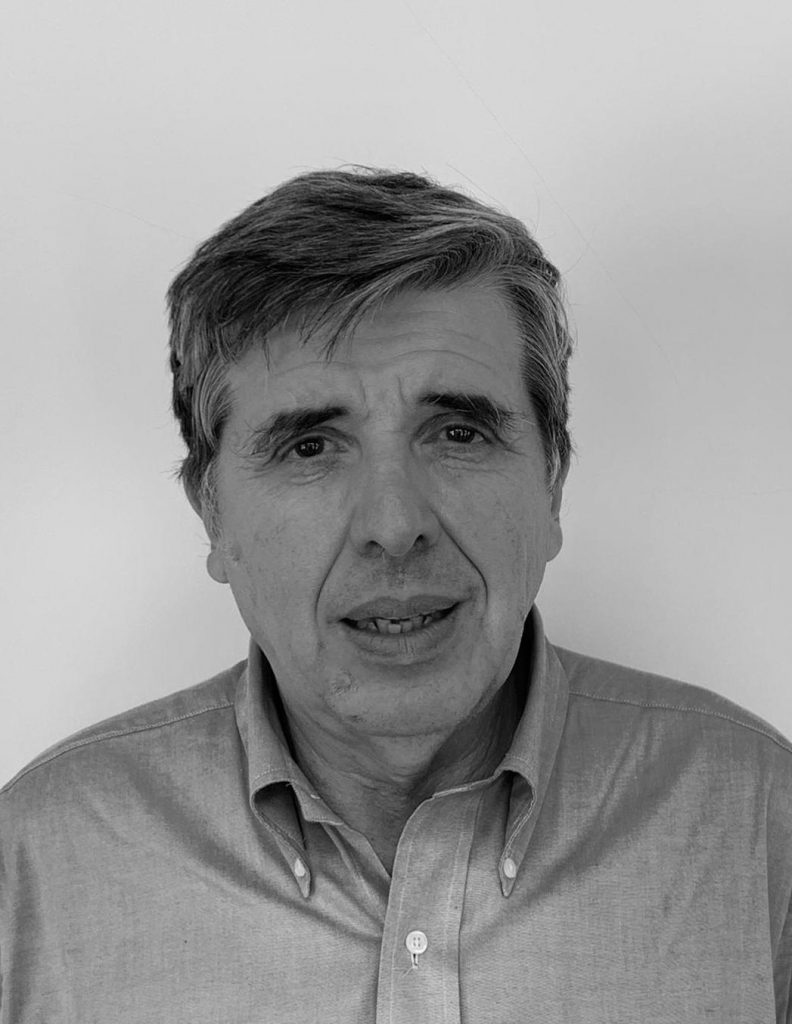
LORENZO PIGNATTI
Lorenzo Pignatti is Full Professor of Architectural Design at the Dipartimento di Architettura– University “G. D’Annunzio” in Pescara (Italy) where he is Academic Coordinator of Studies, Responsible for the International Relations and Erasmus Coordinator.
He has been involved in various international academic exchanges and research projects between Italy and East-Adriatic countries, where he has promoted a large number of research projects, cultural initiatives, conferences and exhibitions. He was responsible for the IFAU2018 conference in Pescara in 2018. Most of this work has been published in monographs and articles in various magazines, including Domus, Piano Progetto Città, and EcoWebTown.
He has been working in developing joint research projects within the Euro-Adriatic Region together with other Universities in Italy, Slovenia, Croatia, Albania, Bosnia-Herzegovina, an Greece. All these experiences are related to the definition of new urban design strategies for vacant sites, where cultural programs could be effective in their regeneration. Some of this work has been published in “Transforming the Landscape: Il progetto di trasformazione nei luoghi della produzione” (Gangemi, 2011), “Projects Along the Coast Line: Adriatic Identities” (List Lab, 2014) and ”Sguardi Incrociati/Crossing Sightlines Atlas of the Adriatic” (Aracne 2017).
More recently he has published “Modernità dei Balcani.da Le Corbusier a Tito” (Lettera Ventidue, 2019) and “Sarajevo. An Account of a City” (Lettera Ventidue 2019).
His architectural practice is centered on the role of public space within urban contexts. He has developed several projects for public spaces, including the design of Piazza San Cosimato in the old center of Rome.
PAOLO GIORDANO
Ordinary Professor of Design ICAR / 17 “DRAWING” at the Department of Architecture and Industrial Design “Luigi Vanvitelli” of the Second University of Naples. Since 2013 he is Coordinator of the Ph.D. in “Architecture, Industrial Design and Cultural Heritage”. Dal 2012 is Coordinator of the Ph.D. in “Representation, Protection, and Security of the Environment and the Structures and Territory Government”. From 2009 to 2012 he was deputy director of the “Department of Culture of the Project”, directed by Prof. Arch. Carlo Manzo. From 2001 to 2014 he was Associate Professor of Design of Architecture and Architecture and Architecture
Since 1999 he is Research Doctor in “Relief and Representation of the Built”, 2nd cycle. Since 1982 he has been honored with honors in Architecture at the University of Naples “Federico II” with a thesis titled “The Design of the Town Hall on the Chiaia Riviera, Naples” (Rapporteur Prof. Arch. Nicola Pagliara). In addition to monographic books, he published articles and critical essays on “Domus”, “AU”, “Stadt Bauwelt”, “Building Design”. He has collaborated, from 1985 to 1995, with the International Architecture magazine “Domus”. He deals with architectural and urban design and survey in the perspective of a critical conjunction between past and contemporary for the government of the modification of the natural and built environment.
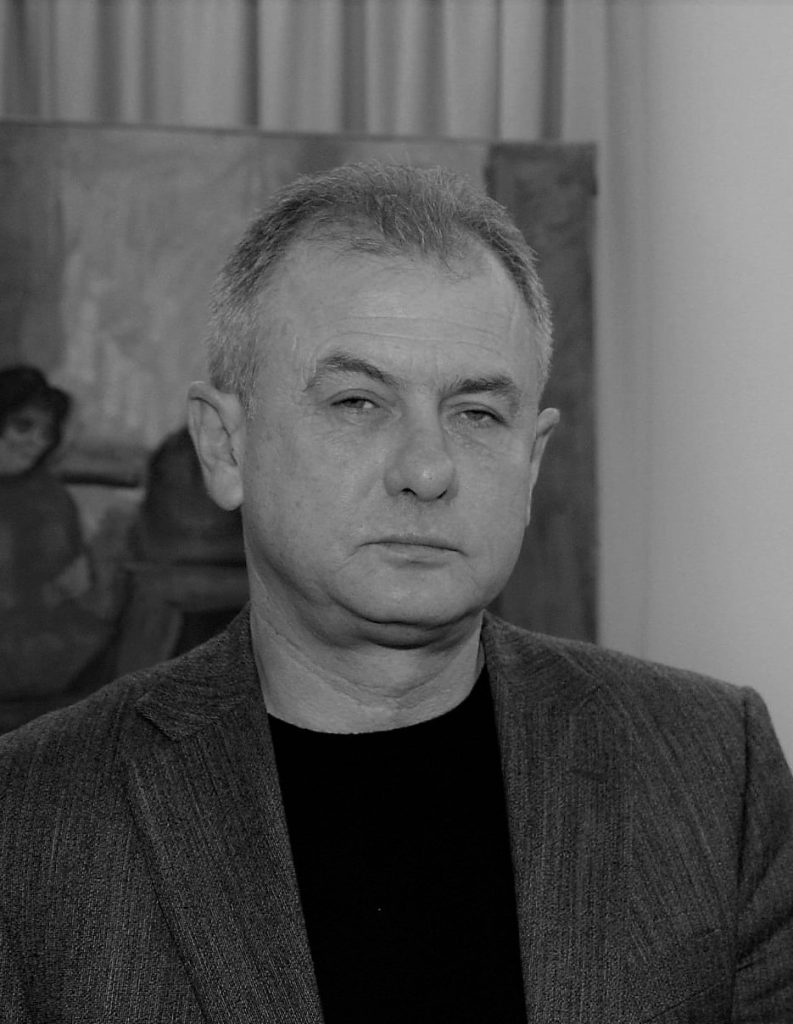
GJON RADOVANI
Architect Gjon Radovani was born in Shkodra on 08.03.1961. He has studied mathematics at the University of Heidelberg and architecture at the University of Stuttgart.
He graduated in 1997 from Stuttgart University with a degree in Architecture: “Diplom Ingenieur der Architektur”, followed by “Master of Sience” and “Freier Architekt”, awarded by the Chamber of Architects of the Land of Baden-Württemberg in Germany.
Mr. Radovani is founder and director of the architectural studio: [space] “architektur stadtplanung design” in Stuttgart, a member of the “Chamber of Architects” of the Land Baden-Württemberg, a member of the organizing committee, promoter and lecturer of the annual international conference on sacral art Rome and Vienna, founder and president of the humanitarian, artistic and scientific association “Claim for Dignity”, jury member of several international design and architecture competitions, founder and chairman of the Art Association “Art Union-Albania”, founder and chairman of the board of the MEMO Center, lecturer at several international conferences and congresses on architecture and urban planning.
His office works on urban planning, architectural and design, project management, cultural heritage, etc. have been developed, implemented or are still in the process of being implemented in Germany, Italy, Spain, Albania, Kosovo, South Africa etc. Areas of activity of the studio are urban plans, multifunctional public and private buildings, sacral buildings, museums, cultural heritage buildings, professional expertise, and the development and patenting of some technical inventions in the field of acoustics.
From October 2013 to October 2017 Mr. Radovani served as Deputy Minister of Urban Development in the Republic of Albania, where he also managed the World Bank project as PAO (Project Authorizing Official), compiled design norms for some categories of buildings and modernized the design fee for architects and engineers. From December 2017 to December 2018 served as advisor for development projects for UNDP. As of January 2019, Mr. Radovani is a freelance professional and runs his own studios in Stuttgart and Tirana.


